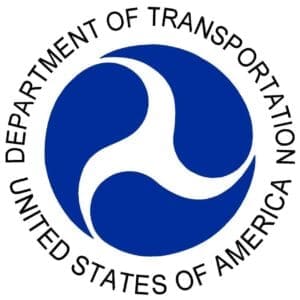 WASHINGTON – Today, the U.S. Department of Transportation’s Maritime Administration (MARAD) announced plans to invest nearly $580 million from the Bipartisan Infrastructure Law to fund 31 port improvement projects in 15 states and one U.S. territory. As part of President Biden’s Investing in America agenda, this funding will help increase both capacity and efficiency at coastal seaports, Great Lakes ports, and inland river ports. The port improvement projects announced today will strengthen supply chain reliability, create workforce development opportunities, enhance freight efficiency, lower costs, reduce emissions, and improve the safety, reliability, and resilience of our ports.
WASHINGTON – Today, the U.S. Department of Transportation’s Maritime Administration (MARAD) announced plans to invest nearly $580 million from the Bipartisan Infrastructure Law to fund 31 port improvement projects in 15 states and one U.S. territory. As part of President Biden’s Investing in America agenda, this funding will help increase both capacity and efficiency at coastal seaports, Great Lakes ports, and inland river ports. The port improvement projects announced today will strengthen supply chain reliability, create workforce development opportunities, enhance freight efficiency, lower costs, reduce emissions, and improve the safety, reliability, and resilience of our ports.
“America’s ports are essential to our nation’s supply chains, and thanks to the Biden-Harris Administration, we have projects underway all across the country—from Long Beach to Milwaukee to Monroe—that are making it possible for our ports to move more goods each year and keep costs down for families,” said U.S. Secretary of Transportation Pete Buttigieg. “With the investments we’re announcing today, made possible by the Bipartisan Infrastructure Law, we’re building on this good work and funding more projects that will expand capacity, improve efficiency, and facilitate the quicker movement of goods at ports in more than a dozen states.”
The funding comes from MARAD’s Port Infrastructure Development Program (PIDP), which received $2.25 billion from the Bipartisan Infrastructure Law to improve port infrastructure to meet the nation’s freight transportation needs. The program provides planning support, capital funding, and project management assistance to improve the capacity and efficiency of ports in both urban and rural areas.
“Modernizing America’s port infrastructure is essential to strengthening the multimodal network that supports our nation’s supply chain,” said Maritime Administrator Ann Phillips. “Approximately 2.3 billion short tons of goods move through U.S. waterways each year, and the benefits of developing port infrastructure extend far beyond the maritime sector. This funding enhances the flow and capacity of goods moved, bolstering supply chain resilience across all transportation modes, and addressing the environmental and health impacts on port communities.”
Through the Bipartisan Infrastructure Law, the Biden-Harris Administration has announced investments in 580+ port and waterway projects to strengthen supply chain reliability, speed up the movement of goods, reduce the costs of everyday items, and lower carbon emissions.
DOT’s historic investments in port infrastructure are part of the Biden-Harris Administration’s effort to build more resilient supply chains. In February 2021, President Biden ordered a multi-agency approach to tackle supply chain disruptions brought on by the COVID-19 pandemic, and later launched the Supply Chain Disruptions Task Force and the Council on Supply Chain Resilience to strengthen our supply chains. The Administration’s steady efforts to improve supply chains in the short-, medium-, and long-term have lowered costs for consumers and lowered inflation across the economy. Supply chains accounted for more than 80% of the fall in inflation seen in 2023 and brought inflation down faster than peer economies around the world. Recently, FLOW was used to help mitigate supply chain disruptions during the nearly three-month Port of Baltimore closure.



















